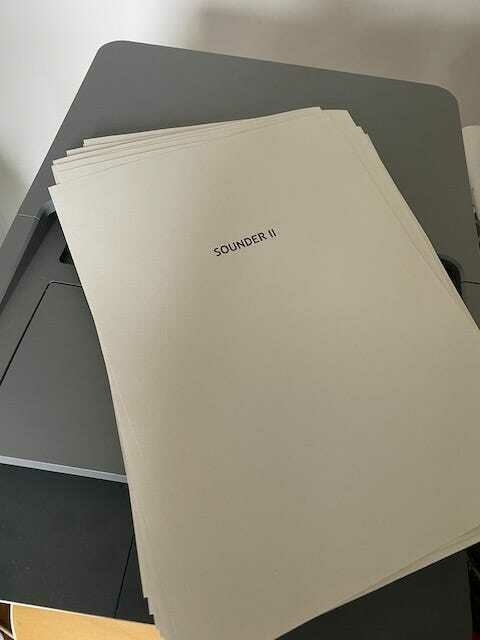Different levels of reading (technologies)
This post by author Nick Harkaway was shared by Warren Ellis in his most recent newsletter. It’s something that my wife and I have talked about recently, as she tends to print everything out to read.
I do occasionally, but only for things I want to read really closely. In fact, I’ve got three levels: deep (paper), medium (e-ink), and shallow (screen). Most of the work that I do doesn’t require super-close reading of the text but rather the general gist of what’s going on. I’ve got an A4-sized ereader so it’s easy to put stuff on there.
Previously, I have printed out things. For example, I printed out my doctoral thesis and put it on the windows of the Jisc offices to make tiny corrections when I was almost ready for submission. I think this is entirely OK and normal.
What I really want is a laptop screen where I can switch between a regular screen and e-ink. Something like this.

There’s a sense of reality in printing (and reading on paper) a finished novel. In theory, you can go through an entire creative effort without ever producing paper on your desktop, but for me there’s a separate space of “tangible book” which has a particular moment and a set of uses. This morning I printed the first two chapters to look at, and aside from the sense of pleasure in seeing a physical manifestation of work done (in this instance a sort of echo, because I held the whole book in A4 recycled a while ago) there’s a difference between words on screen and words on paper.Source: The Print | FragmentaryHolding paper, I notice different things. The work feels different - different tonal issues arise, new sections I need to rewrite. It’s akin to - but different again from - reading a book aloud and hearing the cadences, the unintentional repetitions and homonyms, the blunt force wrongness of an unmodified word. The text is not different, but the experience is, and of course it’s still the paper experience of my book that most people will have. (I think - a couple of my books were bigger sellers as ebooks than paper in some markets, but as far as I know, perhaps even moreso now than a few years ago, paper remains on the throne.)
There are actual science reasons why analogue reading is different - and as the writing process at this point is founded on reading and re-reading, those aspects must be interwoven with the creative edit, irrespective of whether the creative process of itself works differently in the brain depending on the medium in which it is iterated. Whether it’s an inherent quality in the combination of tactile experience and inert text, or whether it’s contingent on my knowledge that digital text is both infinitely editable and subject to sudden interruption when my desktop decides to notify me of something, I find there’s a placidity and a sense of authenticity in the work. I’m always wary of mystifying the tree’s presence in the printed book or the long inheritance of paper, but - be it a societal form or something more fundamental - paper feels more “in the world”.